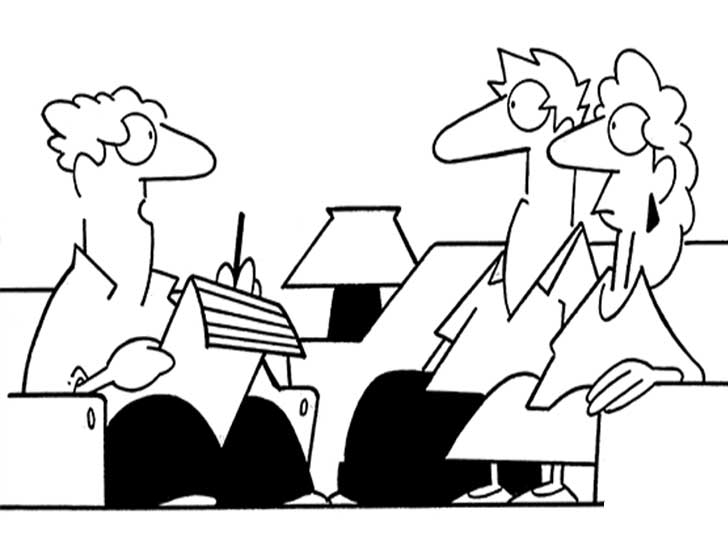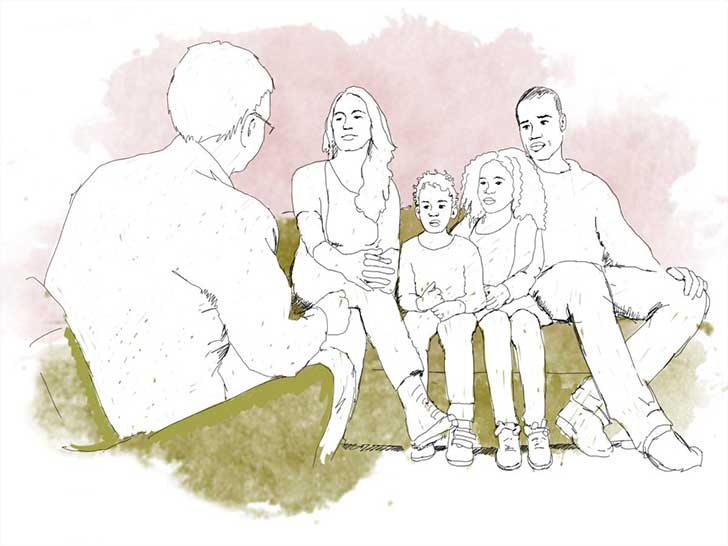اخبار روانشناسی ندای مهر
|
0
|
1
|
2
|
3
|
4
|
5
|
6
|
|
I have no need for affection
|
I have a moderate need for affection
|
I have a great need
for affection
|
|
-3
|
-2
|
-1
|
0
|
1
|
2
|
3
|
|
I am extremely dissatisfied
|
I am neither satisfied nor dissatisfied
|
I am extremely
satisfied
|
|
0
|
1
|
2
|
3
|
4
|
5
|
6
|
|
I have no need for for sexual fulfillment
|
I have a moderate need for for sexual fulfillment
|
I have a great need
for for sexual fulfillment
|
|
-3
|
-2
|
-1
|
0
|
1
|
2
|
3
|
|
I am extremely dissatisfied
|
I am neither satisfied nor dissatisfied
|
I am extremely
satisfied
|
|
0
|
1
|
2
|
3
|
4
|
5
|
6
|
|
I have no need for conversation
|
I have a moderate need for conversation
|
I have a great need
for conversation
|
|
-3
|
-2
|
-1
|
0
|
1
|
2
|
3
|
|
I am extremely dissatisfied
|
I am neither satisfied nor dissatisfied
|
I am extremely
satisfied
|
|
0
|
1
|
2
|
3
|
4
|
5
|
6
|
|
I have no need for recreational companionship
|
I have a moderate need for recreational companionship
|
I have a great need
for recreational companionship
|
|
-3
|
-2
|
-1
|
0
|
1
|
2
|
3
|
|
I am extremely dissatisfied
|
I am neither satisfied nor dissatisfied
|
I am extremely
satisfied
|
|
0
|
1
|
2
|
3
|
4
|
5
|
6
|
|
I have no need for honesty openness
|
I have a moderate need for honesty openness
|
I have a great need
for honesty openness
|
|
-3
|
-2
|
-1
|
0
|
1
|
2
|
3
|
|
I am extremely dissatisfied
|
I am neither satisfied nor dissatisfied
|
I am extremely
satisfied
|
|
0
|
1
|
2
|
3
|
4
|
5
|
6
|
|
I have no need for an attractive spouse
|
I have a moderate need for an attractive spouse
|
I have a great need
for an attractive spouse
|
|
-3
|
-2
|
-1
|
0
|
1
|
2
|
3
|
|
I am extremely dissatisfied
|
I am neither satisfied nor dissatisfied
|
I am extremely
satisfied
|
|
0
|
1
|
2
|
3
|
4
|
5
|
6
|
|
I have no need for financial support
|
I have a moderate need for financial support
|
I have a great need
for financial support
|
|
-3
|
-2
|
-1
|
0
|
1
|
2
|
3
|
|
I am extremely dissatisfied
|
I am neither satisfied nor dissatisfied
|
I am extremely
satisfied
|
|
0
|
1
|
2
|
3
|
4
|
5
|
6
|
|
I have no need for domestic support
|
I have a moderate need for domestic support
|
I have a great need
for domestic support
|
|
-3
|
-2
|
-1
|
0
|
1
|
2
|
3
|
|
I am extremely dissatisfied
|
I am neither satisfied nor dissatisfied
|
I am extremely
satisfied
|
|
0
|
1
|
2
|
3
|
4
|
5
|
6
|
|
I have no need for family commitment
|
I have a moderate need for family commitment
|
I have a great need
for family commitment
|
|
-3
|
-2
|
-1
|
0
|
1
|
2
|
3
|
|
I am extremely dissatisfied
|
I am neither satisfied nor dissatisfied
|
I am extremely
satisfied
|
|
0
|
1
|
2
|
3
|
4
|
5
|
6
|
|
I have no need for admiration
|
I have a moderate need for admiration
|
I have a great need
for admiration
|
|
-3
|
-2
|
-1
|
0
|
1
|
2
|
3
|
|
I am extremely dissatisfied
|
I am neither satisfied nor dissatisfied
|
I am extremely
satisfied
|
|
1
|
2
|
3
|
4
|
5
|
6
|
7
|
|
not at all
true
|
somewhat
true
|
very
true
|
|
1
|
2
|
3
|
4
|
5
|
|
Almost never
(0-10%)
|
Sometimes
(11-35%)
|
About half the time
(36-65%)
|
Most of the time
(66-90%)
|
Almost always
(91-100%)
|
|
1. I am clear about my feelings (R)
|
|
|
2. I pay attention to how I feel (R)
|
|
|
3. I experience my emotions as overwhelming and out of control
|
|
|
4. I have no idea how I am feeling
|
|
|
5. I have difficulty making sense out of my feelings
|
|
|
6. I am attentive to my feelings (R)
|
|
|
7. I know exactly how I am feeling (R)
|
|
|
8. I care about what I am feeling (R)
|
|
|
9. I am confused about how I feel
|
|
|
10. When I’m upset‚ I acknowledge my emotions (R)
|
|
|
11. When I’m upset‚ I become angry with myself for feeling that way
|
|
|
12. When I’m upset‚ I become embarrassed for feeling that way
|
|
|
13. When I’m upset‚ I have difficulty getting work done
|
|
|
14. When I’m upset‚ I become out of control
|
|
|
15. When I’m upset‚ I believe that I will remain that way for a long time
|
|
|
16. When I’m upset‚ I believe that I’ll end up feeling very depressed
|
|
|
17. When I’m upset‚ I believe that my feelings are valid and important (R)
|
|
|
18. When I’m upset‚ I have difficulty focusing on other things
|
|
|
19. When I’m upset‚ I feel out of control
|
|
|
20. When I’m upset‚ I can still get things done (R)
|
|
|
21. When I’m upset‚ I feel ashamed with myself for feeling that way
|
|
|
22. When I’m upset‚ I know that I can find a way to eventually feel better (R)
|
|
|
23. When I’m upset‚ I feel like I am weak
|
|
|
24. When I’m upset‚ I feel like I can remain in control of my behaviours (R)
|
|
|
25. When I’m upset‚ I feel guilty for feeling that way
|
|
|
26. When I’m upset‚ I have difficulty concentrating
|
|
|
27. When I’m upset‚ I have difficulty controlling my behaviours
|
|
|
28. When I’m upset‚ I believe that there is nothing I can do to make myself feel better
|
|
|
29. When I’m upset‚ I become irritated with myself for feeling that way
|
|
|
30. When I’m upset‚ I start to feel very bad about myself
|
|
|
31. When I’m upset‚ I believe that wallowing in it is all I can do
|
|
|
32. When I’m upset‚ I lose control over my behaviours
|
|
|
33. When I’m upset‚ I have difficulty thinking about anything else
|
|
|
34. When I’m upset‚ I take time to figure out what I’m really feeling (R)
|
|
|
35. When I’m upset‚ it takes me a long time to feel better
|
|
|
36. When I’m upset‚ my emotions feel overwhelming
|
|
Extremely uncharacteristic
|
= 0
|
|
Generally uncharacteristic
|
= 1
|
|
Equally characteristic and uncharacteristic
|
= 2
|
|
Generally characteristic
|
= 3
|
|
Extremely characteristic
|
= 4
|
a. 0
b. 1
c. 2
d. 3
e. 4
a. 0
b. 1
c. 2
d. 3
e. 4
a. 0
b. 1
c. 2
d. 3
e. 4
a. 0
b. 1
c. 2
d. 3
e. 4
a. 0
b. 1
c. 2
d. 3
e. 4
a. 0
b. 1
c. 2
d. 3
e. 4
a. 0
b. 1
c. 2
d. 3
e. 4
a. 0
b. 1
c. 2
d. 3
e. 4
a. 0
b. 1
c. 2
d. 3
e. 4
a. 0
b. 1
c. 2
d. 3
e. 4
a. 0
b. 1
c. 2
d. 3
e. 4
a. 0
b. 1
c. 2
d. 3
e. 4
a. 0
b. 1
c. 2
d. 3
e. 4
a. 0
b. 1
c. 2
d. 3
e. 4
a. 0
b. 1
c. 2
d. 3
e. 4
a. 0
b. 1
c. 2
d. 3
e. 4
a. 0
b. 1
c. 2
d. 3
e. 4
a. 0
b. 1
c. 2
d. 3
e. 4
a. 0
b. 1
c. 2
d. 3
e. 4
a. 0
b. 1
c. 2
d. 3
e. 4
a. 0
b. 1
c. 2
d. 3
e. 4
a. 0
b. 1
c. 2
d. 3
e. 4
a. 0
b. 1
c. 2
d. 3
e. 4
Response format:
(1) not at all true‚ (2) barely true‚ (3) moderately true‚ (4) exactly true
|
Subdomain: Independence
|
|
Routine Personal Care and Family Oriented Functions
|
|
1. I make my own meals or snacks.
|
|
2. I care for my own clothes.
|
|
3. I do chores in my home.
|
|
4. I keep my own personal items together.
|
|
5. I do simple first aid or medical care for myself.
|
|
6. I keep good personal care and grooming.
|
|
Interaction with the Environment
|
|
7. I make friends with other kids my age.
|
|
8. I use the post office.
|
|
9. I keep my appointments and meetings.
|
|
10. I deal with salespeople at stores and restaurants.
|
|
Subdomain: Acting on the Basis of Preferences‚ Beliefs‚ Interests and Abilities
|
|
Recreational and Leisure Time
|
|
11. I do free time activities based on my interests.
|
|
12. I plan weekend activities that I like to do.
|
|
13. I am involved in school-related activities.
|
|
14. My friends and I choose activities that we want to do.
|
|
15. I write letters‚ notes or talk on the phone to friends and family.
|
|
16. I listen to music that I like.
|
|
Community Involvement and Interaction
|
|
17. I volunteer in things that I am interested in.
|
|
18. I go to restaurants that I like.
|
|
19. I go to movies‚ concerts‚ and dances.
|
|
20. I go shopping or spend time at shopping centers or shopping malls.
|
|
21. I take part in youth groups (like 4-H‚ scouting‚ church groups)
|
|
Post-School Directions
|
|
22. I do school and free time activities based on my career interests.
|
|
23. I work on school work that will improve my career chances.
|
|
24. I make long-range career plans.
|
|
25. I work or have worked to earn money.
|
|
26. I am in or have been in career or job classes or training.
|
|
27. I have looked into job interests by visiting work sites or talking to people in that job.
|
|
Personal Expressions
|
|
28. I choose my clothes and the personal items I use every day.
|
|
29. I choose my own hair style.
|
|
30. I choose gifts to give to family and friends.
|
|
31. I decorate my own room.
|
|
32. I choose how to spend my personal money.
Self-Regulation
The Self-Regulation section consists of two subdomains‚ with questions which require students to write (or dictate) answers.
|
|
58. I do not feel ashamed of any of my emotions
59. I feel free to be angry at people I care for.
60. I can show my feelings even
61. I can like people even if I don't agree with them.
62. I am afraid of doing things wrong.
63. It is better to be yourself than to be popular.
64. I am loved because I give love.
65. I know what I do best.
66. I don't accept my own limitations.
67. I feel I cannot do many things.
68. I like myself.
69. I am not an important person.
70. I know how to make up for my limitations.
71. Other people like me.
72. I am confident in my abilities.
|
|
1
|
2
|
3
|
4
|
5
|
6
|
7
|
|
not at all
true for me
|
Very true
for me
|

-

8 باور اشتباه که برای زندگی مشترک شما خطرناک است
کارشناس ندای مهر (مشاوره خانواده) -

روش کار مشاوره ازدواج چگونه است؟
کارشناس ندای مهر (مشاوره ازدواج) -

چرا به مشاوره خانواده مراجعه کنیم و به وی پول بدهیم؟
کارشناس ندای مهر (مشاوره خانواده) -

چه کسانی بیش از همه به مشاوره خانواده و بعد ازدواج نیاز دارند؟
کارشناس ندای مهر (مشاوره خانواده) -

مزایا و فایده مشاوره خانواده برای من چیست؟
کارشناس ندای مهر (مشاوره خانواده)




